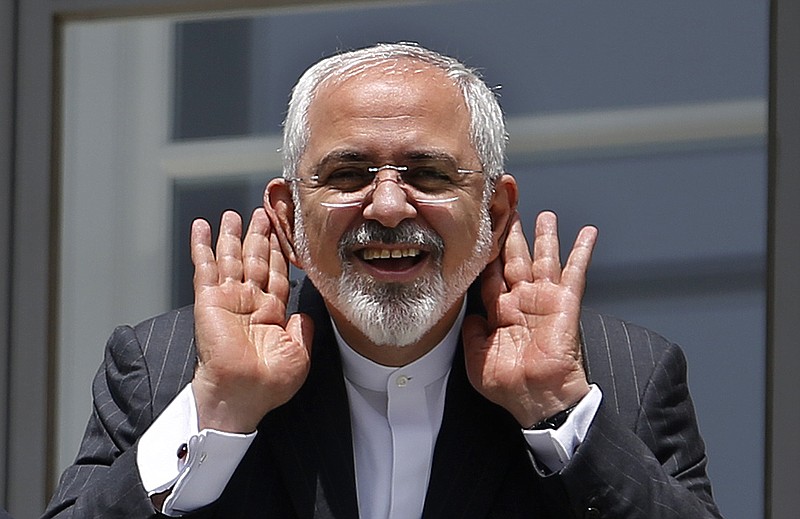The United States and other Western nations have lit the fuse that will ignite the Middle East.
Whether that happens sooner or later, it is the likely result of an agreement Tuesday with Iran over its nuclear weapon capabilities.
Read more
* Give Iran deal a hard look and serious debate* Corker expresses concern, skepticism over Iran nuclear deal* Iran nuclear deal: Fine 'new chapter' or 'historic mistake'?
The agreement, which in theory only delays the world's top terror-sponsoring country from building a nuclear bomb, is expected to set off an arms race in the already tense region. Countries such as Saudi Arabia will not wait for a phantom 10-year time period in which Iran is prohibited from working on a bomb to arm themselves. And Israel, Iran's sworn enemy, already has nuclear weapons.
For the Middle East generally, for U.S. ally Israel specifically and for the U.S. strategically, Congress should turn down this deal.
Sen. Bob Corker, R-Tenn., who as Senate Foreign Relation Committee chairman led the battle to give lawmakers a voice in the deal, said he begins an examination of the agreement "from a place of deep skepticism."
Two years ago, at the beginning of negotiations to dismantle Iran's nuclear program, Iran "was a rogue country with a boot on its neck," he said Tuesday, referencing economic sanctions. When an interim agreement was signed in April, "the Rubicon was crossed," Corker said, meaning that efforts to dismantle Iran's bomb-making capabilities shifted to "managed proliferation."
Tuesday's announcement means Iran in large measure is being welcomed back to the international community. With $100-$150 billion in frozen assets from lifted sanctions, an arms embargo lifted in time and the ability to further industrialize, Iran will be able to grow and be considered a non-rogue country.
President Obama didn't waste any time telling the U.S. where he stood, saying he naturally expects robust hearings on the deal but threatened a veto if Congress votes against it. Should he veto it, Congress would need a two-thirds majority to override it.
However, Corker noted, the president had threatened to veto the bill allowing Congress to review the agreement but withdrew that threat shortly before what he knew would be an overwhelming vote for the bill.
Obama, beginning from his first presidential campaign in 2008 until earlier this year, said more than two dozen times he would prevent Iran from getting a nuclear weapon. In the end, he was so desperate for a deal that he allowed the U.S. to capitulate on almost every issue to make the deal.
And then, despite terms of the agreement, the president Tuesday claimed "every pathway [for Iran] to a nuclear weapon is cut off."
In truth, international inspectors must ask Iran's permission to investigate its suspected sites, then wait 14 days while the country considers the request. If the inspectors are turned down, Western nations who made the deal have 10 days to determine what to do next. In 24 days, a lot can happen.
Throughout the two-year negotiating period, the Islamic Republic cheated on agreements it made to start the talks and to continue them. Among other things, Iran attempted to obtain illicit technology for its nuclear and missiles program from Germany, failed to follow regulations on enriching uranium and failed to provide answers on the military dimensions of its nuclear program.
What makes the U.S. and other Western countries believe a country whose favorite phrase is "Death to America" would abide by any part of any agreement?
In the end, the U.S. did not wind up getting any of the provisions it once insisted upon - no dismantling of the country's nuclear program, no unfettered inspections, no end to Iran's terror sponsorship, no ballistic missile program curbs, no arms embargo maintenance, no prevention of enriching uranium and no shutdown to the underground Fordow nuclear facility. And, of course, the sanctions relief.
For his part, Obama says the country made the best deal it could get and that any alternative only draws the world closer to war. That's a sad and sorry fallback from a position only two years ago where, as Corker said, Iran was a rogue nation "with a boot on its neck."
Should this agreement go forward - and the administration will beg the United Nations for cover first to sway weak members of Congress - the Middle East will remain tinder for a fire that could break out at any time.
And the United States will continue to look weaker in the eyes of the world.
